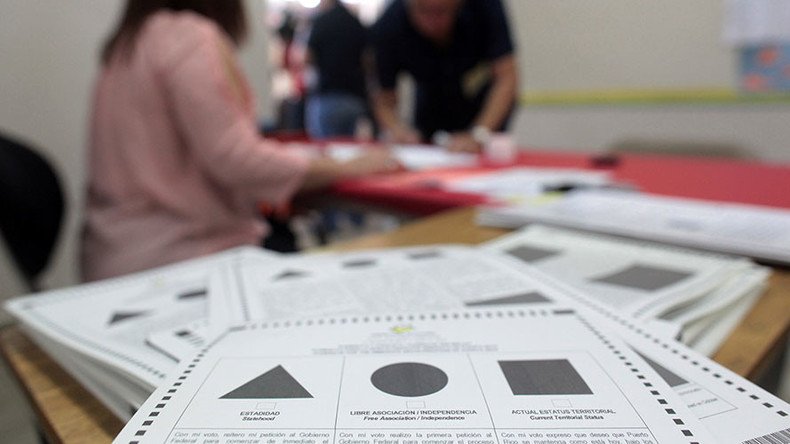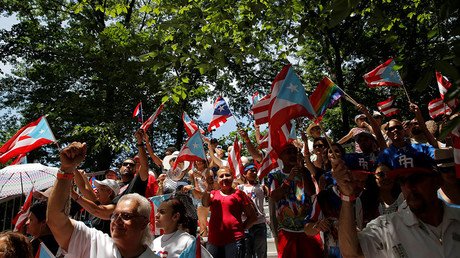Puerto Rico votes ‘Yes’ to join the US amid record low referendum turnout

With a record low turnout of 23 percent, Puerto Ricans have voted to join the US as the Union's 51 State. The US Congress will now have to decide whether it wants to expand the nation’s borders and accept the poverty stricken Caribbean island into the Union.
Some 97.18 percent of the people who voted in Sunday’s non-binding referendum said they want to become part of the United States, the State Elections Commission (CEE) commission announced.
Only 1.5 percent of voters said they would choose independence, while 1.32 percent said they want to remain a self-governing territory within the US commonwealth.
#PuertoRico| la participación fue de 22,98% con una abstención aproximada de 78% que fue la opción de los independentistas y soberanistas pic.twitter.com/9eX0zjuqz2
— Madelein Garcia (@madeleintlSUR) June 11, 2017
But despite the clear ‘Yes’ vote to join the US, the plebiscite only registered a 23 percent turnout of 2.25 million eligible voters. Sunday’s referendum was boycotted by opposition parties, including those which support independence.
The leader of the Popular Democratic Party (PPD), Carlos Delgado, called the result of the election a blow to the credibility of Governor Ricardo Rossello.
“Today, sadly, this [election] process leads this country to present to the world that democracy failed, the call to participate in democracy failed,” Delgado said.
“What we have seen here is the result of manipulation, the predetermined action of not seeking consensus on the core issues of the country,” he added.
The final decision on whether or not to accept Puerto Rico as the 51st state lies with the US Congress. Article IV, Section 3 of the American Constitution grants the US Congress authority to grant statehood.
It is believed that Republicans, who now control the majority of seats, would be reluctant to support statehood for a territory that is likely to lean Democrat. It would also mean more federal spending on what would become the poorest state in the US.
Puerto Rico is suffering from a large deficit, public service cutbacks, and a 12 percent unemployment rate and public services 64 percent more expensive than in the US mainland. The crisis has led to half a million Puerto Ricans migrating to the mainland over the last decade.
Puerto Rico has been under the control of the US since 1898 when it was taken in the Spanish-American war. Despite gaining US citizenship in 1917, the island has been stuck in a legal limbo between being a colony and a full-on state.













